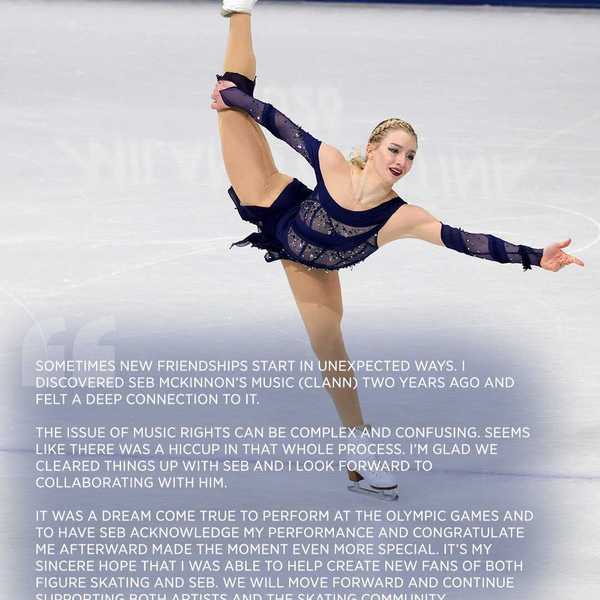Live Nation Looking Forward
"... Our business is highly sensitive to rapidly changing public tastes and is dependent on the availability of popular artists and events."

By External Source
The following is excerpted from Live Nation Entertainment's most recent annaul report that showed remarkable growth for the global entertainment firm. The excerpt here explains that even with meteoric growth, there are risk factors and what follows explains in detail various variables that could challenge the company at a future time.
... Our business is highly sensitive to rapidly changing public tastes and is dependent on the availability of popular artists and events. Our live entertainment business depends in part on our ability to anticipate the tastes of consumers and to offer events that appeal to them. Since we rely on unrelated parties to create and perform at live music events, any unwillingness to tour or lack of availability of popular artists could limit our ability to generate revenue. In particular, there are a limited number of artists that can headline a major North American or global tour or who can sell out larger venues, including many of our amphitheaters. If those artists do not choose to tour, or if we are unable to secure the rights to their future tours, then our concerts business would be adversely affected. Our artist management business could be adversely affected if the artists it represents do not tour or perform as frequently as anticipated, or if such tours or performances are not as widely attended by fans as anticipated due to changing tastes, general economic conditions or otherwise.
Our ticketing business relies on third parties to create and perform live entertainment, sporting and leisure events and to price tickets to such events. Accordingly, our ticketing business’ success depends, in part, upon the ability of these third parties to correctly anticipate public demand for particular events, as well as the availability of popular artists, entertainers and teams.
In addition, our live entertainment business typically books our live music tours two to nine months in advance of the beginning of the tour and often agrees to pay an artist a fixed guaranteed amount prior to our receiving any revenue. Therefore, if the public is not receptive to the tour, or we or an artist cancel the tour, we may incur a loss for the tour depending on the amount of the fixed guarantee or incurred costs relative to any revenue earned, as well as revenue we could have earned at booked venues. We have cancellation insurance policies in place to cover a portion of our losses if an artist cancels a tour but such policies may not be sufficient and are subject to deductibles. Furthermore, consumer preferences change from time to time, and our failure to anticipate, identify or react to these changes could result in reduced demand for our services, which would adversely affect our business, financial condition and results of operations.
Our business depends on relationships between key promoters, executives, agents, managers, artists and clients and any adverse changes in these relationships could adversely affect our business, financial condition and results of operations.
The live music business is uniquely dependent upon personal relationships, as promoters and executives within live music companies such as ours leverage their existing network of relationships with artists, agents and managers in order to secure the rights to the live music tours and events which are critical to our success. Due to the importance of those industry contacts to our business, the loss of any of our promoters, officers or other key personnel could adversely affect our business.
Similarly, the artist management business is dependent upon the highly personalized relationship between a manager and an artist, and the loss of a manager may also result in a loss of the artist represented by the manager, which could adversely affect our business. Although we have entered into long-term agreements with many of those individuals described above to protect our interests in those relationships, we can give no assurance that all or any of these key employees or managers will remain with us or will retain their associations with key business contacts, including music artists.
The success of our ticketing business depends, in significant part, on our ability to maintain and renew relationships with existing clients and to establish new client relationships. We anticipate that, for the foreseeable future, the substantial majority of our Ticketing segment revenue will be derived from both online and mobile as well as direct sales of tickets. We also expect that revenue from primary ticketing services, which consist primarily of per ticket convenience charges and per order service fees, will continue to comprise the substantial majority of our Ticketing segment revenue. We cannot provide assurances that we will be able to maintain existing client contracts, or enter into or maintain new client contracts, on acceptable terms, if at all, and the failure to do so could have a material adverse effect on our business, financial condition and results of operations.
Another important component of our success is our ability to maintain existing and to build new relationships with third- party distribution channels, advertisers, sponsors and service providers. Any adverse change in these relationships, including the inability of these parties to fulfill their obligations to our businesses for any reason, could adversely affect our business, financial condition and results of operations.
We face intense competition in the live music and ticketing industries, and we may not be able to maintain or increase our current revenue, which could adversely affect our business, financial condition and results of operations.
Our businesses are in highly competitive industries, and we may not be able to maintain or increase our current revenue due to such competition. The live music industry competes with other forms of entertainment for consumers’ discretionary spending and within this industry we compete with other venues to book artists, and, in the markets in which we promote music concerts, we face competition from other promoters and venue operators. Our competitors compete with us for key employees who have relationships with popular music artists and who have a history of being able to book such artists for concerts and tours. These competitors may engage in more extensive development efforts, undertake more far-reaching marketing campaigns, adopt more aggressive pricing policies and make more attractive offers to existing and potential artists.
Due to increasing artist influence and competition to attract and maintain artist clients, we may enter into agreements on terms that are less favorable to us, which could negatively impact our financial results. Our competitors may develop services, advertising options or music venues that are equal or superior to those we provide or that achieve greater market acceptance and brand recognition than we achieve. Within the live music industry, our artist management business also competes with numerous other artist management companies and individual managers in the United States alone, both to discover new and emerging artists and to represent established artists. Across the live music industry, it is possible that new competitors may emerge and rapidly acquire significant market share.
Our ticketing business faces significant competition from other national, regional and local primary ticketing service providers to secure new and retain existing clients on a continuous basis. Additionally, we face significant and increasing challenges from companies that sell self-ticketing systems and from clients who choose to self-ticket, through the integration of such systems into their existing operations or the acquisition of primary ticket services providers or by increasing sales through venue box offices and season and subscription sales.
We also face competition in the resale of tickets from online auction websites and resale marketplaces and from other ticket resellers with online distribution capabilities. The advent of new technology, particularly as it relates to online ticketing, has amplified this competition. The intense competition that we face in the ticketing industry could cause the volume of our ticketing services business to decline. As we are also a content provider and venue operator we may face direct competition with our prospective or current primary ticketing clients, who primarily include live event content providers. This direct competition with our prospective or current primary ticketing clients could result in a decline in the number of ticketing clients we have and a decline in the volume of our ticketing business, which could adversely affect our business, financial condition and results of operations.
In the secondary ticket sales market, we have restrictions on our business that are not faced by our competitors, which restrictions include those that are self-imposed, imposed as a result of agreements entered into with the Federal Trade Commission (“FTC”) and the Attorneys General of several individual states, various international governing bodies, and statutory. These restrictions include: restrictions on linking from our page on the www.ticketmaster.com website that informs consumers that no tickets were found in response to their ticket request to our resale ticketing options without first obtaining approval from the State of New Jersey as to any material changes to our current linking practices; a requirement to clearly and conspicuously disclose on any primary ticketing website where a link or redirect to a resale website owned or controlled by us is posted, that the link is directing the user to a resale website and that ticket prices often exceed the ticket’s original price; and a requirement to make certain clear and conspicuous disclosures and in certain instances to create separate listings when a ticket being offered for resale is not “in-hand” as well as a requirement to monitor and enforce the compliance of third parties offering tickets on our websites with such disclosure requirements.
Our competitors in the secondary ticket sales market are not, to our knowledge, bound by similar restrictions. As a result, our ability to effectively compete in the secondary ticket sales market may be adversely affected, which could in turn adversely affect our business, financial condition and results of operations.
In connection with our merger with Ticketmaster Entertainment, Inc., we became subject to both a court-imposed final judgment in the United States and a consent agreement with Canadian authorities, pursuant to which we have agreed to abide by certain behavioral remedies that prevent us from engaging in retaliatory business tactics or improper tying arrangements. In addition, we are restricted from engaging in certain business activities that would be lawful for us to undertake absent the final judgment and the consent agreement.
Our inability to undertake these business strategies could disadvantage us when we compete against firms that are not restricted by any such order, and we therefore face certain unquantifiable business risks as a result of compliance.
Other variables that could adversely affect our financial performance by, among other things, leading to decreases in overall revenue, the number of sponsors, event attendance, ticket prices and fees or profit margins include:
• an increased level of competition for advertising dollars, which may lead to lower sponsorships as we attempt to retain advertisers or which may cause us to lose advertisers to our competitors offering better programs that we are unable or unwilling to match;
• unfavorable fluctuations in operating costs, including increased guarantees to artists, which we may be unwilling or unable to pass through to our customers via higher ticket prices;
• inability to fund the significant up-front cash requirements associated with our touring and ticketing businesses due to insufficient cash on hand or capacity under our senior secured credit facility, which could result in the loss of key tours to competitors or the inability to secure and retain ticketing clients;
• competitors’ offerings that may include more favorable terms than we do in order to obtain agreements for new venues or ticketing arrangements or to obtain events for the venues they operate;
• technological changes and innovations that we are unable to adopt or are late in adopting that offer more attractive entertainment alternatives than we or other live entertainment providers currently offer, which may lead to a reduction in attendance at live events, a loss of ticket sales or lower ticket fees; and
• other entertainment options available to our audiences that we do not offer.

















